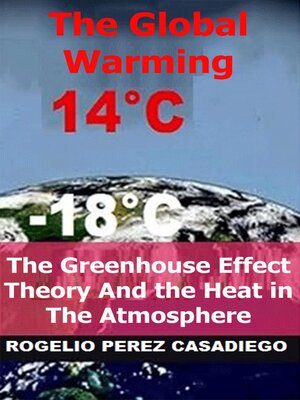The Greenhouse Effect Theory and the Heat in the Atmosphere; the Global Warming
ebook
By ROGELIO PEREZ CASADIEGO

Sign up to save your library
With an OverDrive account, you can save your favorite libraries for at-a-glance information about availability. Find out more about OverDrive accounts.
Find this title in Libby, the library reading app by OverDrive.



Search for a digital library with this title
Title found at these libraries:
| Library Name | Distance |
|---|---|
| Loading... |
Global warming is one of the greatest challenges facing humanity, with profound environmental and social consequences. The dominant scientific explanation blames the burning of fossil fuels, which increases the greenhouse effect by trapping infrared heat in the atmosphere.
However, this theory of the greenhouse effect presents inconsistencies with the fundamental laws of physics and thermodynamics. For example, it ignores the role of conduction and convection in heat transfer, wrongly assumes that infrared radiation is equivalent to heat, and does not adequately explain the origin of atmospheric thermal energy.
This book carries out a rigorous critical analysis of the theory of the greenhouse effect, exploring its thermodynamic foundations, the kinetic behavior of gases and their modes of heat transfer. He identifies conceptual flaws such as confusion between temperature and heat, excessive emphasis on radiation, and ignorance of the principles of thermal conduction and convection. In this book he presents mathematical and conceptual evidence that CO2 does not play a very important role in atmospheric temperature.
On this basis, the book raises the need to develop a new, more comprehensive paradigm to understand the complex physics of the Earth's atmosphere. A renewed theory will require incorporating the contributions of classical thermodynamics, fluid mechanics and the kinetic theory of gases. Only in this way will we be able to build more coherent explanations of global warming, which transcend the limitations of the current view of the greenhouse effect.







